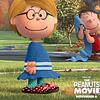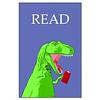You need to sign in or sign up before continuing.
Take a photo of a barcode or cover
3.5/5
I didn't enjoy this as much as Konigsburg's previous works. Things really didn't pick up until the middle of the book and the characters felt underdeveloped. That said, the premise is fascinating - Konigsburg does excel at weaving art history into her plots.
Reading some of the reviews surprised me. Yes, there are more complex* topics covered in this novel. Does that make them inappropriate for middle schoolers? I don't believe it does. Often times, teachers and parents underestimate children's comprehension and awareness and unwittingly shape negative attitudes around certain themes by avoiding them altogether.
*I'm referring to Nazi Germany and nudity in art. While the global history of homosexuality is complex (as is any type of history), homosexuality itself is not. Love is love is love is love is love. It's way past time we treated it as such.
I didn't enjoy this as much as Konigsburg's previous works. Things really didn't pick up until the middle of the book and the characters felt underdeveloped. That said, the premise is fascinating - Konigsburg does excel at weaving art history into her plots.
Reading some of the reviews surprised me. Yes, there are more complex* topics covered in this novel. Does that make them inappropriate for middle schoolers? I don't believe it does. Often times, teachers and parents underestimate children's comprehension and awareness and unwittingly shape negative attitudes around certain themes by avoiding them altogether.
*I'm referring to Nazi Germany and nudity in art. While the global history of homosexuality is complex (as is any type of history), homosexuality itself is not. Love is love is love is love is love. It's way past time we treated it as such.
a good story ... enriched by the lovely narration of Edward Hermann
An interesting book about some kids helping an older woman pack up her home (as she plans to enter assisted living) and discovering a piece of art that may be loot from the artistic treasures stolen by the Nazis. What is the story of this art and how did this woman come to own it?
A very deep book about emotion and what motivates people to act in certain ways. Even so, told mostly through the eyes of a young teen, the issues are simply communicated and easy to digest for a young audience.
I picked this up because a young patron at my library told me she had enjoyed it but not really understood it. There are some very deep issues running through it that I can see I might’ve missed as a teen or tween reading this book. I am eager to see her again so we can discuss it, and I will urge her to read it again in 20 years!
I picked this up because a young patron at my library told me she had enjoyed it but not really understood it. There are some very deep issues running through it that I can see I might’ve missed as a teen or tween reading this book. I am eager to see her again so we can discuss it, and I will urge her to read it again in 20 years!
A curious misfire from the usually reliable Mrs. Konigsburg: unevenly structured, overwritten, full of quirks that ultimately signify nothing, and covered with a strange hermetic feeling.
Like many other readers, I picked this up because I read and loved “From the Mixed-Up Files…” as a kid. (One book I could still read on repeat and love.)
Unfortunately, I could not for the life of me get into this book (and frankly, a, very okay with that after reading some of the lower-star reviews…thank you, readers, for sparing me). I stopped after a few chapters out of sheer boredom, and now I’m pretty confident I won’t pick it up later “in case it gets better” or “I’m in a different headspace.”
Unfortunately, I could not for the life of me get into this book (and frankly, a, very okay with that after reading some of the lower-star reviews…thank you, readers, for sparing me). I stopped after a few chapters out of sheer boredom, and now I’m pretty confident I won’t pick it up later “in case it gets better” or “I’m in a different headspace.”
It was interesting, I'll admit. Good characters, funny situations. But its not as lively as some of her other books. It just didn't have the same interesting plot. It got bogged down in some parts, and not in the parts it should have, which is unfortunate. Still, it's a good read, with some cool history incorporated in there, and great characters.
This book deals with some difficult issues but also deals with the gray areas that make up real life.
Started off so well, with delightful lines like
"Shabby in a gentell way, as if the people who lived there didn't have to keep up with the Joneses because they themselves were the Joneses."
But the momentum just didn't stay. I loved that the story involved Nazi-stolen art and smart kids and funky grown-ups, but it just didn't feel right. There's a museum director as a character who is completely unlike any museum director I've ever know (not in a good way).
And the ultimate resolution, while satisfying, almost felt false.
Just doesn't have the same magica as other Konigsburg, though it's still Konigsburg which makes it better than lots of kidlit.
"Shabby in a gentell way, as if the people who lived there didn't have to keep up with the Joneses because they themselves were the Joneses."
But the momentum just didn't stay. I loved that the story involved Nazi-stolen art and smart kids and funky grown-ups, but it just didn't feel right. There's a museum director as a character who is completely unlike any museum director I've ever know (not in a good way).
And the ultimate resolution, while satisfying, almost felt false.
Just doesn't have the same magica as other Konigsburg, though it's still Konigsburg which makes it better than lots of kidlit.
I really looked forward to this book. E.L. Konigsburg is one of my favorite authors, although reading her books often feels like chatting with an odd, socially-awkward, intriguing wallflower at a party. Perhaps it's her lack of contractions: there's a piece of me that's always a little detached but interested. This book was a disappointment, though: didactic and predicated on relationships that just didn't feel real.






